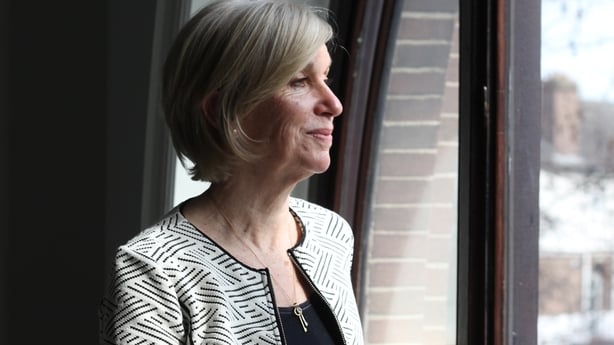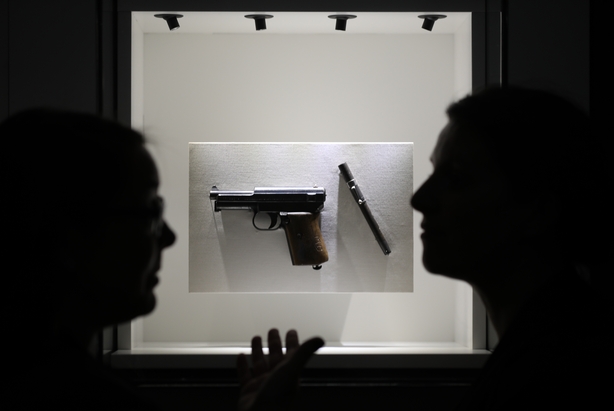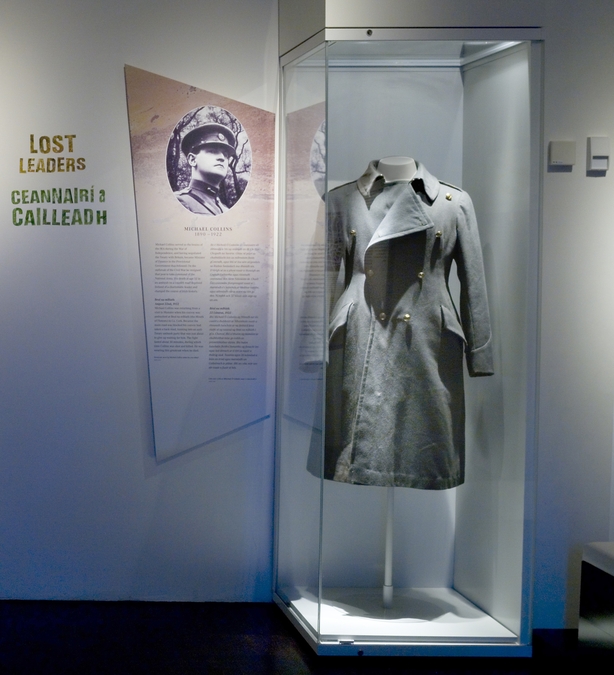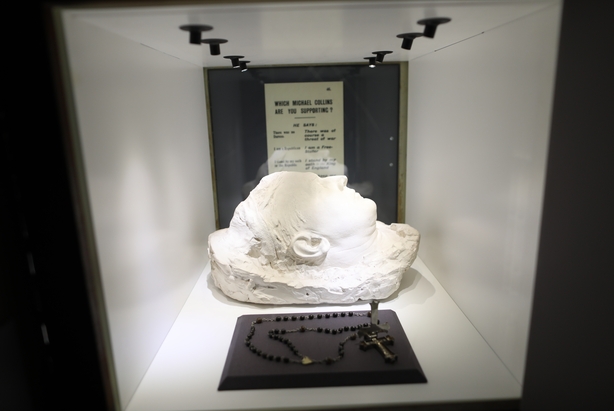Drawing heavily on a hundred years of historical scholarship and verified witness testimony, the new RTÉ Documentary Cold Case Collins imagines an investigation that never happened - watch a preview above, and watch Cold Case Collins here via RTÉ Player.
The audience eavesdrops on a police inquiry conducted by two fictitious investigators in 1924. Key protagonists and fabled names from Ireland's Independence struggle arrive into an interrogation room for questioning, as the detectives try to put together the pieces of the jigsaw of what really happened in Béal na mBláth.

In a parallel strand, the former State Pathologist, Professor Marie Cassidy chairs a 21st century cold case comprising forensic scientists, criminal investigators, military strategists, archaeologists, archivists and historians. In this room, they will curate evidence and artefacts side by side with cutting edge scientific analysis about the death of Michael Collins.
Viewers eavesdrop on the experts as they sift and filter through the evidence old and new, looking for answers to the questions that have ignited bar brawls for decades...
Below, Dr Audrey Whitty, Head of Collections and Learning at the National Museum of Ireland, who contribute to Cold Case Collins, explores the items in NMI's collection of Collins artefacts.
As we mark the 100th anniversary of Michael Collins' death, it is an opportunity for us to reflect on the influence of our country’s past and how its material legacy is preserved and interpreted as being critical in the telling of Ireland’s story, while contributing to our contemporary idea of Irish identity.
We have a number of objects relating to Michael Collins in the collection of the National Museum of Ireland (NMI), many of which are on public display at the NMI - Decorative Arts & History, Collins Barracks, Dublin which takes its name from him.

The cap that Michael Collins was wearing at the time of his death at Béal na Bláth on 22nd August, 1922 is the subject of substantial discussion in the upcoming docu-drama Cold Case Collins, which seeks to imagine the Garda investigation that never happened.
The cap was on display at the National Museum of Ireland from 1991 to 2005, however it is now only available to view by appointment due to conservation concerns, because it is in a delicate state.
The cap in khaki green is the Commander-in-Chief (National Army) pattern. There is evidence of blood and other matter inside the crown of the cap, with mud staining on the outside. The cap badge and leather band are missing, and there are small holes torn at the front where they had been. There is also a large tear at the back left side.

The cap, along with the greatcoat also worn by Michael Collins at the time of his death, were deposited in the National Museum of Ireland from WT Cosgrave's office - who was President of the Executive Council - on 27th January 1923. The NMI's register entry for the object mentions that 'Instructions were sent by Banim, President Cosgrave’s Private Secretary to have the coat brought over to the Museum... Instructions were sent by telephone.’
The greatcoat and rosary beads he was wearing at the time of his death are also on display at Collins Barracks. The flag, which draped his body on the journey from Cork to Shanakiel Hospital after his fatal wounding is also part of the NMI’s extensive holdings. 1.8m metres by 1.35 metres in size, it bears a red cross on a white ground. The father of the donor of the flag was one of the ambulance crew and a medical officer with the 3rd Battalion.

Also on exhibition is the pen Michael Collins allegedly used to sign the Anglo-Irish Treaty in 1921, his death mask and a range of other objects relating to his life and political activity. These, along with several other fascinating objects relating to all sides of the conflict, are on display in the Irish Wars 1919-1923 and Studio & State exhibitions.
Michael Collins was a pivotal figure in what was a very complex period in the emergence of an independent Irish state. There are many perspectives and views as to how the role he played in Irish history should be remembered. In the National Museum of Ireland, we strive to present all sides during this 20th century revolutionary era equally so that every visitor to the national collections can increase their understanding of our shared history.
Cold Case Collins, RTÉ One, Wednesday 24th August at 9.35 pm
